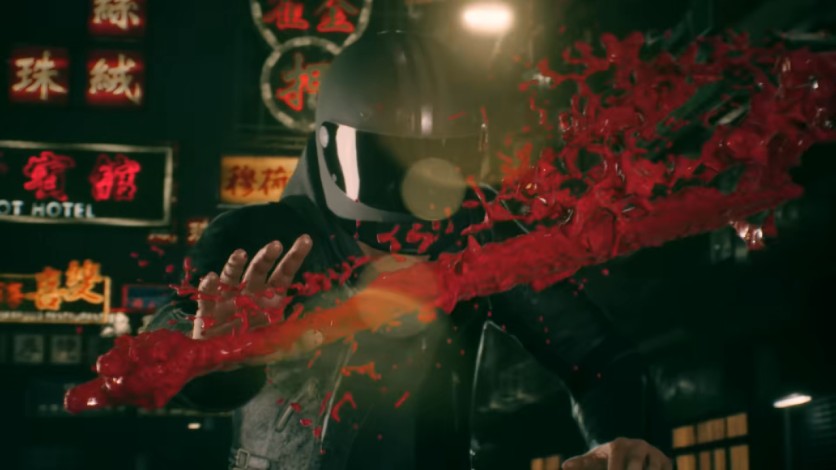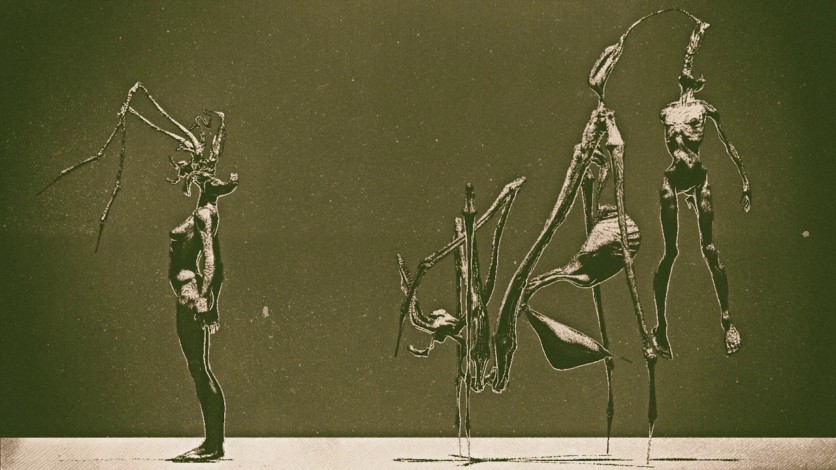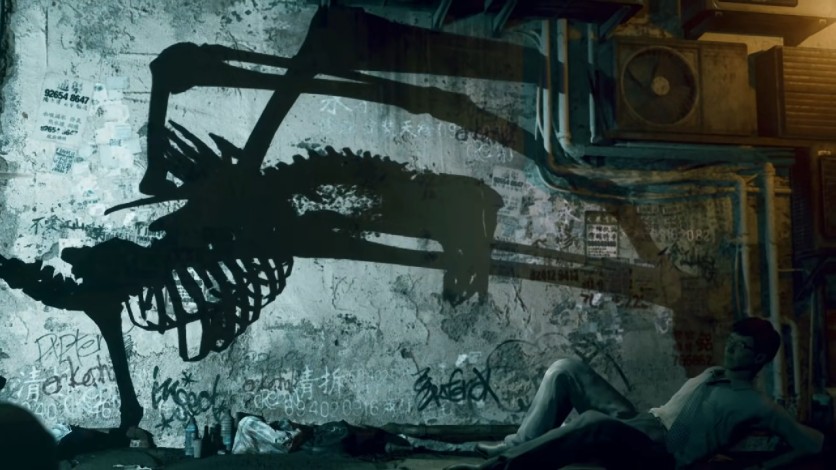Announced amid The Game Awards last December, Bokeh Game Studio's very first outing proved to be both ingeniously inspired as well as terrifyingly grotesque. The Slitterhead teaser trailer was everything that a horror fanatic, like myself, would truly fall in love with, as the game from the very outset appears to stray away from the all-too-familiar dark and brooding survival horror setting.
Sure, no Slitterhead gameplay has yet to be revealed, but the tone of its first trailer affords a more action-packed approach to the horror video game resplendent with monsters a la Dead Space. I had the privilege of speaking via email with Bokeh Game Studio and its head Keiichiro Toyama, a renowned figure for birthing such classics as Silent Hill, Siren, and Gravity Rush. Below, I will attempt to divulge upon the story of Bokeh Game Studios while also underscoring its upcoming official debut.
Going Independent
In 2020, Toyama decided to leave behind Sony's Japan Studio and, taking a page out of Fumito Ueda's book, founded his own shop of horror. Bokeh Game Studios' announcement video, posted on Dec. 2, 2020, features Toyama alongside Junya Okura and Kazunobu Sato in presenting a new vision of game design, of which Toyama expressly relays fulfilling "fans' expectations" as its foundational bedrock.
Now over a year later, Bokeh Game Studio basks in the glory of its Slitterhead trailer release.
Q: How did it feel seeing your trailer amid The Game Awards and receiving so much hype?
Toyama: It's completely different as this is our first title after turning independent. I was relieved that there was a lot of feedback, as we strongly felt the game would need as much attention as it could get. It seemed to be unexpected in various meanings, and you can see that there were mixed reactions, however at the same time, I think some saw it in a way that we weren't going to create something predictable but rather challenging.
It's an interesting position for Bokeh Game Studio, as its head is a masterclass at video game design. This could lead to overinflated anticipations from fans and a need for total perfection in its finished product via the director. But, despite his previous work, Toyama remains humble in this newfound independence with his eyes firmly set on the future.
Q: As Bokeh Game Studio's very first title, is there anything specific that the team feels they NEED to get right with this one?
Toyama: We would like to establish ourselves as a recognized studio that pursues unique and original games.
Slitterhead already evokes unparalleled promise for fans of both the genre and Toyama, but to fan the fires of excitement, I had to wonder what Bokeh Game Studio envisions terror at its pinnacle.
Q: In Bokeh Game Studio's mind, what are the most important aspects of a horror experience?
Toyama: Maybe the fear of the unknown - I believe the most fearful situation is when you don't know anything.
Enter Slitterhead itself and the overall development process surrounding it. While Toyama may have a long history in the games industry, Bokeh Game Studio, on the whole, obviously does not. The team is treading new ground, added to the fact that it will be Toyama's first multi-platform release in nearly 20 years.
Q: What is the most difficult aspect in the process of developing Slitterhead currently?
Toyama: It's an immense task trying to establish an understanding within the team that a new system will work and be enjoyable from a player perspective. This is something you go through every time you create a new IP so while you can say it's standard procedure for us, it's never an easy job. We're also inexperienced in releasing across various platforms, so are extra careful in regard to this.
Mutating the Classics
First-person survival has no sooner become a stale take in the world of horror gaming. Thus, Slitterhead will endure a whole varied approach to its design and gameplay, as so eloquently revealed in its heavy rock-guitar-laden teaser trailer.

Q: What types of game design and mechanics are you utilizing in Slitterhead to set it apart from the rest?
Toyama: While we obviously can't disclose too much at this point, it will be a game with completely new mechanics unseen in other works. In terms of storytelling, there are also unusual elements we are going for. I would like to open up gradually as we get closer to launch.
For those concerned, however, Toyama expressly relays that his roots have not been forgotten. Only Slitterhead will prove to be a whole new adventure from the same brazen mind.
Q: I know these are very different games, but what are some concepts or themes you might be using from Silent Hill or Forbidden Siren or even Gravity Rush in Slitterhead?
Toyama: From our past works we have always worked on structure that allows you to be immersed in the game world by the synergistic effect of adventure and action, and are continuing to do so. I can say that the core concept of originality unseen in other works is also persistent this time around.
Designing Fear
At its core, Slitterhead already appears to be a horror game unlike any other, but Toyama expounds upon this concept in more detail.
Q: Can you explain to me where Slitterhead sort of leans? Is it more geared towards action, or is survival more of a focal point? The trailer seems to evoke this action-oriented approach, but with no gameplay, it's hard to tell.
Toyama: We will be focusing on battle-action for this game, however it won't be what you may call an exhilarating-annihilation sort of approach. We'd like to try and have tension and speed coexist simultaneously. We will also deal with powers that ordinary humans don't possess.
The designs of the various monsters inhabiting the game world of Slitterhead, called Yakushi, gave me flashbacks of Dead Space. I had to wonder if the sci-fi horror hit from 2008 had any direct influence on Toyama's next project, but it's clear that Slitterhead will be in a world all its own.

Q: The trailer seemingly puts a large emphasis on body horror or gore. Can you tell me of any movies, books, or even other games that may have inspired either the monsters or the whole of the work in its entirety?
Toyama: I think there is a large influence from Japanese comics for adults. In terms of how we're building the world, and visually, there are inspirations from Fruit Chan's films.
For those unaware, Fruit Chan is a second-wave Chinese filmmaker who has been noted to utilize lesser-known actors in the film art of depicting Hong Kong's slice of life. He has accumulated several decorations for his work, including Best Director and Best Screenplay amidst the 1998 and 2001 Hong Kong Film Awards, respectively.
Toyama also noted Hong Kong director Wong Kar-wai as influential to Slitterhead in an internal interview posted on Bokeh Game Studio's YouTube channel. Kar-wai is particularly notorious for utilizing nonlinear narratives in his films, which may be front and center as the driving mechanism of Slitterhead's own tale.
Q: What does the approach to Slitterhead look like? Is it character-focused, world-focused, or all of the above? And, for that matter, where does the game take place?
Toyama: As you can tell from the trailer, the setting is inspired from Hong Kong in the 1990s. However, it won't be a realistic reproduction, but rather a fictitious city suitable for the game. For approach, it will be both character- and world-focused. It will be a somewhat strange drama portrayed by diverse characters.
Although not necessarily a horror experience, as the director relays otherwise, the forthcoming title, Ghostwire Tokyo, seemingly shares some similarities to what Slitterhead is described as, given both games' action-oriented approach and use of supernatural abilities. But Toyama dispenses with my concerns quite immediately.
Q: Can you tell me if the game is played in either third or first-person (I know, this might be a bit spoilery) and how the game world itself will function? Is it a linear approach or a semi-open world to some degree?
Toyama: It will be a third-person game, and in terms of the basic systems such as player and camera movement it's safe to say it will be an orthodox style in that sense. It won't be an open world game, but not completely linear either. There will be areas which the player can move around freely to an extent, and also closed off situations for exploratory elements, combining into a wide variety of gameplay.

To wrap things up, I wanted to see what excited Toyama from an industry standpoint, and his answer speaks volumes on the underlying feel that Slitterhead will evoke: immense challenge broadened by Toyama's characteristic brand of terror.
Q: Lastly, an easy one, what are some games coming out this year that the team is looking forward to, horror or otherwise?
Toyama: As I actually play more indie games and challenging VR titles compared to big hits, I'm looking forward to "Hollow Knight: SIlksong."
As of yet, there is no official release date set for Bokeh Game Studio's Slitterhead, but it has earmarked 2023 as a specific window for arrival. It's clear the studio still has a ton of work left before a proper build is born, but the concept, themes, and gameplay mechanics - if even only barely understood just yet - highlight Slitterhead's ample room for domination in the realm of interactive horror.
Fans will have to wait and see what Toyama and Bokeh Game Studio have in store for them as the excitement and anticipation will no doubt mutate into terror upon Slitterhead's debut.
ⓒ 2026 TECHTIMES.com All rights reserved. Do not reproduce without permission.




